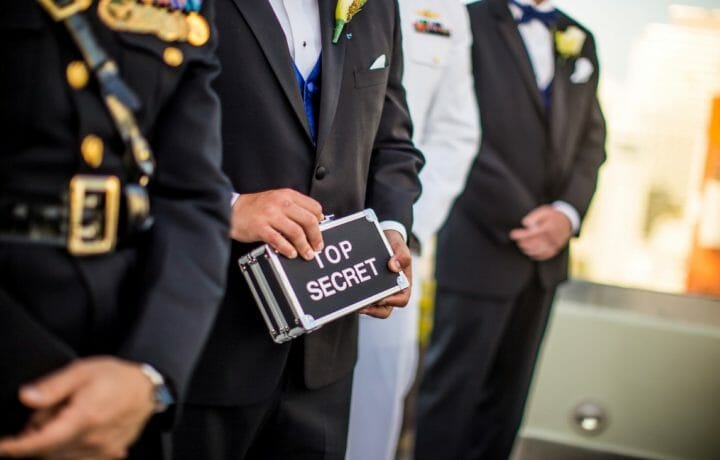“Clear this!” commanded a scientist flying past my desk. His disembodied hand heaved a gigantic sheaf of technical papers in front of me. I sat staring as the deliverer disappeared down the hall, and the mound of documents fluttered in front of me. This is how my new organization apparently ‘cleared’ documents for public release. A spy’s dream come true.
Clearance holding personnel absolutely must know how to release formerly classified documents correctly (and chucking it onto the desk of your Facility Security Officer is not the way).
Federal clearance of documents for public release takes many forms. Let’s talk about the most practiced one, the Freedom of Information Act. This act, the FOIA, came about because many Americans felt government employees overused the power of classification. No American could reasonably know what on earth his government was doing by reading unclassified documents. Much Congressional back and forth finally resolved itself in the current law. The purpose of the FOIA is to allow Americans, or anyone who requests, the right to know what our government is doing on a given subject.
Foia then and now
American journalist Terry Anderson was held from 1985 to 1991 by Middle Eastern terrorists. Once free, Anderson thought he’d find out what his government did for him while held all those long years in captivity. He requested documents relating to his period of incarceration from the government. With virtually no exception, the papers he received were useless, almost completely redacted. On some pages there were no words left at all, having been purged by overzealous federal reviewers. He lamented that one agency wanted him to get notarized permission from those holding him. Sadly he observed, the terrorists were not available to ask.
Today there is good guidance for what can and cannot be released under FOIA. All requests must be responded to within a certain time frame. Nine exemptions explain what cannot be released. Well thought out, they are reasonable and available for all to see. I was particularly cognizant of law enforcement aspects of a document which which could be protected from release, but I didn’t know science or technical details. Thus I could ‘clear’ nothing of this scientific paper on my own. That’s where I helped write a policy for our organization for such responses. I’ll show how a team came together, and made it work.
procedures for Responding to a FOIA request
The author of a requested document should be the first signatory to authorize what could be released. If he didn’t write the whole document, that part is forwarded to whoever did. The request then goes to the Foreign Disclosure officer. Yes, even if the requester is from Peoria, Illinois, under the FOIA a document once released is now available to everyone on earth. Thereafter, security gets a look and finally, public affairs. Each of these groups has a role in knowing what is being protected by the larger organization, and why. Finally, the whole document is signed off by the senior official responsible for the document. (Usually, the person whose directorate caused the document to be written in the first place.)
Why do we care about the health of the FOIA? Why not err on the side of too much secrecy? Senator Daniel Patrick Moynihan, commissioned to write a study of Secrecy in Government, had this to say:
“Excessive secrecy has significant consequences for the national interest when, as a result, policymakers are not fully informed, government is not held accountable for its actions, and the public cannot engage in informed debate. This remains a dangerous world; some secrecy is vital to save lives, bring miscreants to justice, protect national security, and engage in effective diplomacy.”
He acknowledged what the FOIA does. It is there to strike a balance between adequately informing the public, allowing policymakers to make informed decisions, holding policymakers accountable, and security.
Each of us who holds a clearance needs to strike that balance. We need to protect information, but we need to protect our ability as a nation to understand and act upon that information, as well. We should make available only what helps our national security be effective and understandable, and protect only that which protects our nation when not released. Make sure your company does this.




